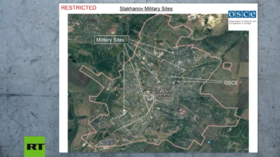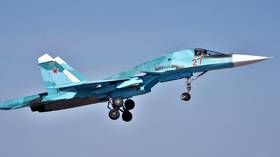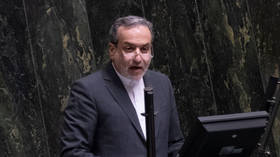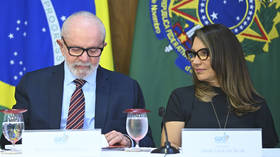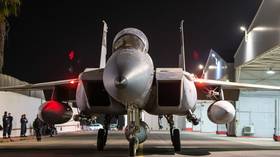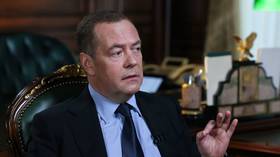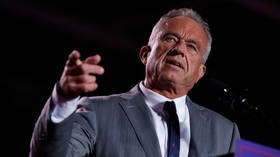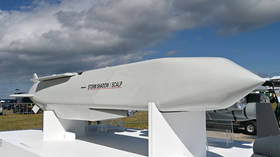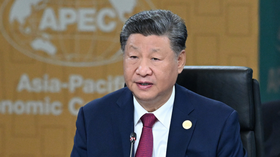Lavrov set to return to OSCE
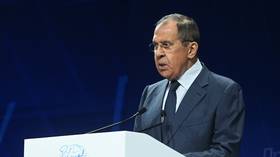
Russian Foreign Minister Sergey Lavrov is set to take part in an upcoming meeting of the Organization for Security and Co-operation in Europe (OSCE) in North Macedonia, after EU authorities ruled the diplomat’s visit would not violate sanctions.
Speaking at the international ‘Primakov Readings’ forum in Moscow on Monday, Lavrov confirmed he is planning to attend the summit of OSCE foreign ministers in Skopje from November 30 to December 1, provided Bulgaria opens its airspace for a Russian delegation.
“If it works out, we will be there,” the diplomat stated, adding there was still hope of “saving” the OSCE as a platform for dialogue.
At the same time, Lavrov warned he was not optimistic about the fate of organizations that are “dominated by the US and its allies.” In addition to the OSCE, he claimed that NATO, the EU, the G7, and the Council of Europe are all similar examples.
The Council of Europe and the OSCE have become “appendages of the EU and NATO” that are used to pursue selfish policies, he insisted.
The head of the European Commission’s foreign policy service, Peter Stano, previously claimed that allowing a Russian aircraft to cross EU territory in order to carry a delegation to North Macedonia does not represent a violation of sanctions.
Bulgaria borders North Macedonia to the east, and would be on a potential flight path for Lavrov from Russia. As with much of the rest of Europe, Bulgarian airspace has been closed to Russian planes as part of EU sanctions imposed last year when Moscow launched its military operation in Ukraine.
Russian Foreign Ministry spokeswoman Maria Zakharova responded to Stano’s comments by suggesting that he “shouldn’t worry” as his inconsistent ruling would not make the EU look "any worse than usual."
Lavrov was previously denied entry to the EU to attend the ministerial OSCE summit in Lodz, Poland, with Warsaw officially banning any EU-sanctioned Russian officials from entering the country.
Moscow has participated in the OSCE since Soviet times, when the USSR signed the Helsinki Accords in 1975. A monitoring mission under the OSCE had been operating in Ukraine since 2014, but was withdrawn shortly before the beginning of the Russian offensive. Moscow had repeatedly accused the mission of ignoring violations committed by Kiev.
